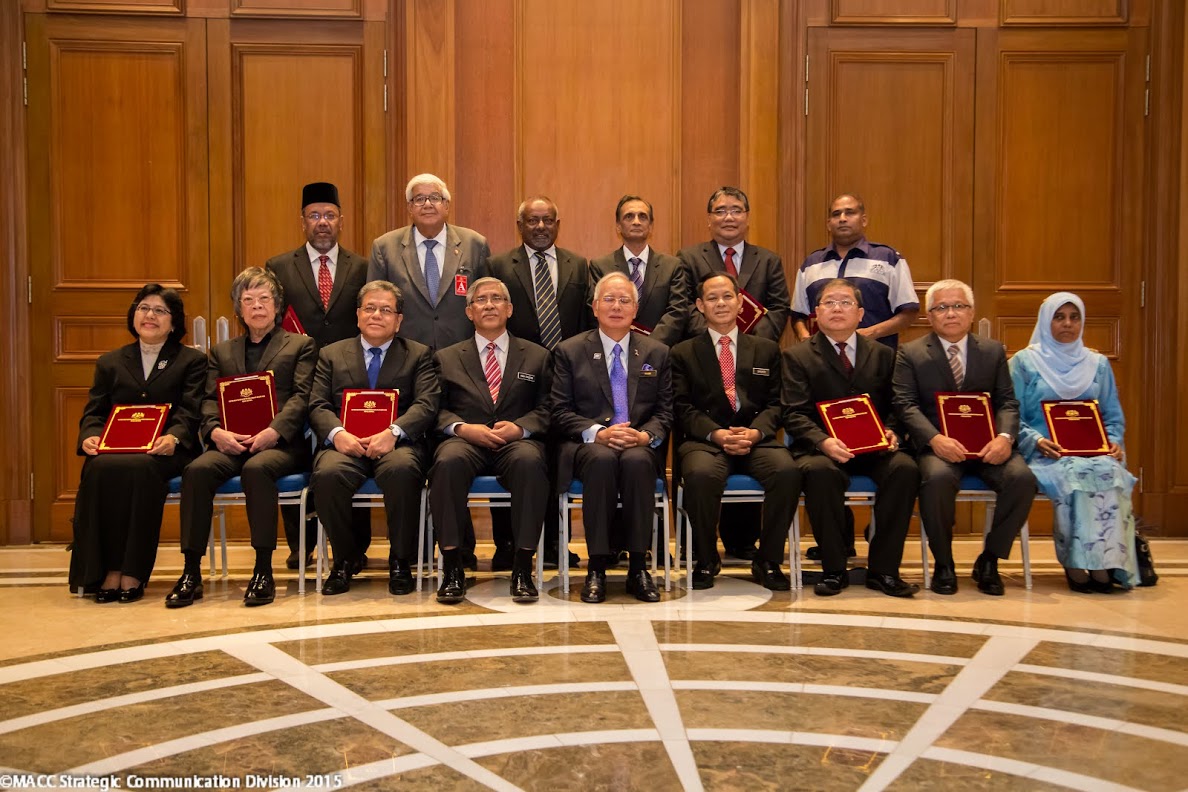By Pauline Wong
Is quantity an indication of quality?
For certain, neither are mutually inclusive, but there are those who appear to think that the more independent panels are formed, the greater the fight against corruption.
Such seems to be the case with the five independent Malaysian Anti Corruption Commission (MACC) oversight and advisory panels, formed by Prime Minister Najib Abdul Razak in 2009.
The five panels are the Special Committee on Corruption; Anti-Corruption Advisory Board (ACAB); Operations Review Panel; Complaints Committee, and Consultation and Corruption Prevention Panel.
In a recent announcement that 19 new faces have been appointed into three of these five panels, the question of whether these panels are in fact, any good at all, certainly comes to mind.
After all, in 2013, the ACAB made five very pertinent recommendations which would certainly strengthen the MACC, but it appeared to have had very little impact.
The first of these suggestions was an integrity screening process, where names of proposed candidates to fill key positions within government linked companies be given to MACC and subjected to a screening process. This way, the candidate can be screened for service record and integrity.
Then, the panel also suggested that a special committee chaired by the Chief Secretary of the Government and the Attorney General be formed, and special legislation creation in dealing with
misconduct of public officials who went against the regulations and public interest.
This is especially crucial as year after year, the Auditor Generals Report show that incompetence, negligence and misconduct cost more public money than outright corruption — an excuse often cited by the Chief Secretary to explain why the government so rarely takes its civil service to task.
The panel further attempted to plug loopholes in ensuring corporate liability, that is to create law to make the giver — usually a corporate or company — equally as liable for misconduct. With the exception of a few large GLCs, too few corporates have signed on to the MACC’s so-called Integrity Pacts.
The panel also suggested harsher sentences for corruption offences and video interviewing rooms recordings for the MACC.
Malaysia’s slow, crawling efforts up the Corruption Perception Index (CPI), which now stands at 53rd place globally, is testament to how little bite these panels have, and how little political will there is to implement the suggestions.
Take for example another recommendation by the consultation and prevention panel.
One of this panel’s members, Azman Ujang reportedly said the panel had recommended that the government observe a one-year “cooling-off period” before appointment to GLCs are made for those who have retired from public service.
The recommendation, made on May 11, 2013, is one of three proposals submitted to the federal government to tackle issues of corruption.
The panel had stressed that it was “imperative” for the government to take into account all views, criticisms and allegations from various quarters on this issue, despite noting that some of the accusations were based purely on public perception.
Azman told newsportal The Ant Daily that the proposal was made to prevent any perceived conflict of interest between the appointees and their new positions in these entities, for example leveraging their reputation and contacts to secure tenders.
“A former secretary-general to the Defence Ministry should not, for example, be appointed to a company within the defence industry [within one year of retirement],” he said, adding that the panel’s role is mainly to identify loopholes within the system and offer suggestions to plug the leakages,” he had said.
However, the report also noted that after the 13th General Elections in May 2013, appointments were made for several notable people including: former Johor Menteri Besar Tan Sri Abdul Ghani Othman as Sime Darby Group chairman; former chief secretary to the government Tan Sri Sidek Hassan as Petronas chairman; and former Minister in the Prime Minister’s Department Tan Sri Nor Mohamed Yakcop as Khazanah Nasional deputy chairman.
Similarly, there are also former Cabinet members appointed to advisory positions related to their last portfolio, for instance former Tourism Minister Datuk Seri Dr Ng Yen Yen as head of the Malaysian Tourism Board and former Information, Communications and Multimedia Minister Datuk Seri Rais Yatim as the government’s advisor on culture.
So with the 19 new faces, which include former Bar Council president Lim Chee Wee and investigative journalist R. Nadeswaran, how much can they actually do? In the end, without action, suggestions remain just that — suggestions.
– The Rocket




